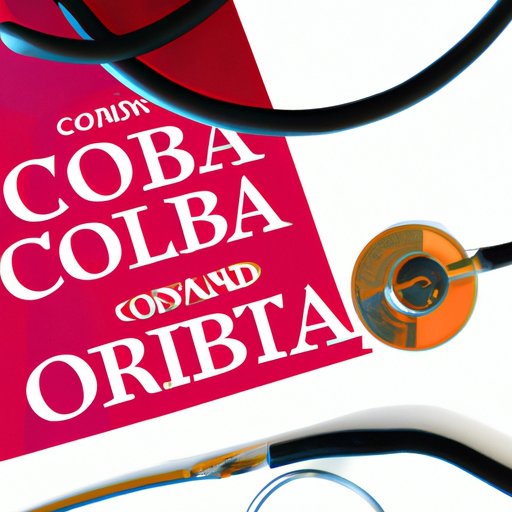
Introduction
If you’ve recently lost your job, you may have heard about Cobra Health Insurance. But what is it, and how does it work? In this article, we’ll explain everything you need to know about Cobra Health Insurance, including its eligibility requirements, coverage options, and alternatives.
What is Cobra Health Insurance?
Cobra Health Insurance is a federal law that allows eligible individuals to continue their employer-sponsored health insurance coverage for a limited time after losing their job or experiencing a reduction in hours. It was created to ensure that employees don’t lose their healthcare coverage during a transition period, such as switching jobs or facing unexpected job loss.
To qualify for Cobra Health Insurance, you must have worked for a company with 20 or more employees that offers employer-sponsored health insurance. Additionally, you must have experienced a qualified life event, such as job loss, reduction in hours, divorce, or death of the primary insured.
The benefits of Cobra Health Insurance are that you can keep the same healthcare coverage you had while employed, including doctors, hospitals, and prescription drug coverage.
How Cobra Health Insurance Works
When you enroll in Cobra Health Insurance, you become responsible for paying the entire cost of the healthcare premiums, rather than sharing the cost with your employer.
You have 60 days from the date of the qualifying life event to enroll in Cobra Health Insurance, and your coverage will begin on the date of the life event. Your healthcare coverage can last for up to 18 months, or in some cases, up to 36 months.
It’s important to note that while Cobra Health Insurance provides similar coverage to employer-sponsored healthcare plans, there may be differences in the coverage and premiums. Cobra Health Insurance premiums can be expensive, as they include the full cost of the healthcare plan without any subsidy from the employer.
Understanding Your Options: Is Cobra Health Insurance Right for You?
Choosing whether or not to enroll in Cobra Health Insurance depends on several factors, including your healthcare needs and financial situation.
If you expect to have significant healthcare needs or upcoming medical expenses, Cobra Health Insurance may be a good option for you, as it allows you to maintain continuous coverage and continue seeing the same healthcare providers. However, if you are generally healthy and have low healthcare costs, you may want to consider alternative healthcare options, such as Marketplace plans or Medicaid.
What to Expect When Signing Up for Cobra Health Insurance
Once you’ve decided to enroll in Cobra Health Insurance, you’ll need to contact your former employer or the healthcare plan administrator to begin the enrollment process. You’ll have 60 days from the date of the qualifying life event to enroll.
After enrolling, your healthcare coverage will begin on the first day of the month following your enrollment date. You’ll be responsible for paying the full cost of the healthcare premiums, which may be a significant financial burden for some individuals.
It’s important to note that if you miss the enrollment deadline, you may not be able to enroll in Cobra Health Insurance and may need to consider alternative healthcare options.
The Pros and Cons of Cobra Health Insurance: Factors to Consider
Cobra Health Insurance has both pros and cons that you should consider before enrolling. One significant advantage is that it allows you to maintain continuous healthcare coverage, which can be essential if you have ongoing medical needs or a chronic condition.
However, one of the biggest downsides of Cobra Health Insurance is its cost. Because you are responsible for paying the full cost of the healthcare premiums, your monthly premiums may be significantly higher than you paid while employed. Additionally, Cobra Health Insurance coverage may have gaps or exclusions that your employer-sponsored healthcare plan did not have.
Cobra Health Insurance vs. Marketplace Plans: Which is Better?
Marketplace plans are an alternative to Cobra Health Insurance, and they may be a better option for some individuals. Marketplace plans offer affordable healthcare coverage and may include subsidies to help offset premium costs.
However, Marketplace plans have limitations, such as restricted provider networks and fewer coverage options. Additionally, Marketplace plans may have different enrollment periods and eligibility requirements, so it’s important to research your options carefully before choosing a plan.
When Cobra Health Insurance Ends: What You Should Do Next
At the end of the Cobra Health Insurance coverage period, you’ll need to find alternative healthcare coverage. This may include enrolling in a Marketplace plan, Medicaid, or other healthcare options.
If you are still unemployed or facing financial hardship, you may qualify for financial assistance to help pay for healthcare costs. It’s crucial to have continuous healthcare coverage to ensure that you are covered in the event of a medical emergency or unexpected healthcare expense.
Conclusion
Understanding Cobra Health Insurance is crucial for anyone who has recently lost their job or experienced a reduction in hours. While Cobra Health Insurance can be expensive, it provides a critical safety net for individuals who need continuous healthcare coverage during a transitional period. We encourage you to research your options carefully and consider all factors before making a decision about your healthcare coverage.




